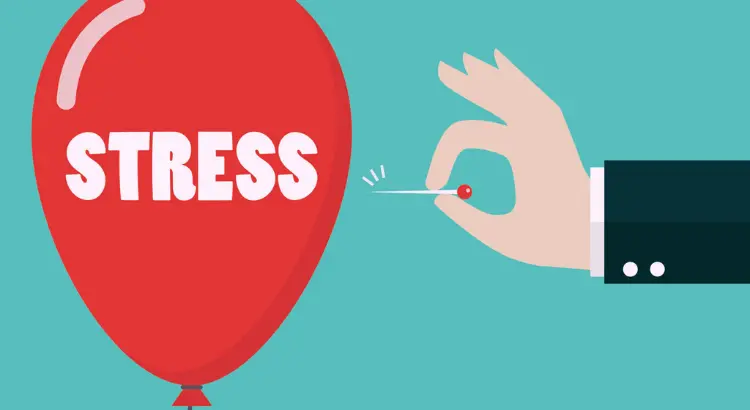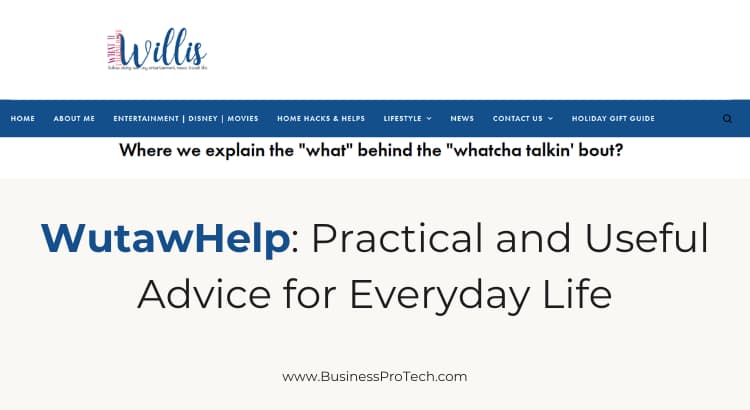In today’s fast-paced world, finding reliable and practical advice can make a big difference in how we navigate through daily challenges. Whether it’s managing your time, improving productivity, or dealing with stress, there’s a lot to gain from simple, actionable tips that make life easier.
That’s where WutawHelp (WhatUTalkingAboutWillis) comes in—offering useful advice across different aspects of life, from work to home, mental well-being, and relationships.
Time Management: Take Control of Your Day

One of the most common struggles people face is managing their time effectively. With distractions like social media, emails, and daily tasks competing for attention, it can be challenging to stay focused.
Here are some simple but effective ways to take control of your time:
- Start with a Plan: Before jumping into your day, take five minutes to list out your priorities. Whether it’s using a planner, a digital app, or simply jotting things down on paper, having a visual guide helps.
- Time Blocking: Break your day into blocks of time dedicated to specific tasks. For example, you could assign 9-10 AM for emails, 10-12 PM for focused work, and a break after lunch. This helps prevent multitasking, which is often a productivity killer.
- The 2-Minute Rule: If a task will take you less than two minutes, do it immediately. This rule prevents small tasks from piling up and becoming overwhelming.
- Avoid Perfectionism: Many people waste time obsessing over details that don’t significantly impact the outcome. Striving for excellence is important, but knowing when to stop fine-tuning and move on is key.
By employing these strategies, you’ll not only improve your productivity but also reduce the stress that comes from feeling like there’s never enough time.
Also Read: Whatutalkingboutwillis com: Your Go-to for Gifts and Wellness Guides
Declutter Your Space for a Clear Mind
It’s amazing how much our physical environment affects our mental clarity. Clutter at home or work can lead to feelings of stress and being overwhelmed.
Here’s how to tackle it:
- Start Small: If your whole house or workspace feels like a mess, it’s easy to get overwhelmed. Start with one area, such as your desk or a single drawer. Accomplishing small tasks gives you the momentum to tackle larger areas.
- Use the “One In, One Out” Rule: For every new item you bring into your space, get rid of something old. This will keep things from piling up over time.
- Keep Surfaces Clear: A clean, clutter-free workspace or home environment can drastically improve focus. Try to limit how many things are on your desk, countertops, or tables.
- Minimalism is Key: You don’t have to go full minimalist, but adopting some minimalist principles can reduce the amount of unnecessary items that create clutter. Focus on keeping things that are truly useful or meaningful.
The clearer your space, the clearer your mind will feel. You’ll also save time not having to search for things or feel distracted by the chaos around you.
Mental Well-being: Manage Stress Effectively

Life’s challenges can lead to stress, but with the right techniques, you can manage it before it becomes overwhelming. Here are a few tips to help you maintain mental well-being:
- Practice Deep Breathing: Deep breathing exercises activate your body’s relaxation response, helping to reduce stress. Try this simple technique: Inhale deeply for four seconds, hold for seven, and exhale for eight seconds. Repeat this process a few times, and you’ll notice a calming effect.
- Meditation: Even 5-10 minutes of mindfulness meditation can make a big difference in lowering stress levels. There are plenty of apps and YouTube videos to help guide you through short sessions.
- Take Breaks: Working non-stop without a break can lead to burnout. Incorporating regular breaks into your routine—whether it’s a 5-minute stretch, a short walk, or a cup of tea—helps recharge your brain and body.
- Talk It Out: Sometimes the best way to reduce stress is to talk about what’s bothering you. Whether it’s with a friend, family member, or therapist, talking through your problems can offer a new perspective or simply make you feel heard.
Managing stress isn’t about eliminating it but learning how to cope with it in healthy ways that allow you to move forward with clarity and focus.
Communication Skills: Improve Your Interactions
Good communication is crucial, whether at work, in relationships, or with friends. Developing strong communication skills will improve your interactions and help you avoid misunderstandings:
- Listen Actively: Communication isn’t just about talking; it’s about listening. Active listening means fully focusing on the speaker, not thinking about what you’re going to say next. It also means asking clarifying questions to ensure you understand the other person’s perspective.
- Non-Verbal Cues Matter: Body language, eye contact, and facial expressions all play a role in communication. Ensure your non-verbal cues align with your words, especially when discussing sensitive topics.
- Be Clear and Concise: Whether you’re writing an email or having a conversation, clarity is key. Get to the point without unnecessary filler. This reduces confusion and helps the other person understand you better.
- Be Empathetic: Try to see things from the other person’s point of view. This helps build stronger, more respectful relationships and can prevent conflicts from escalating.
The more effectively you communicate, the more positive your relationships will become, whether in your personal or professional life.
Financial Health: Practical Tips for Managing Money

One area where many people could use a little extra help is financial management. Whether it’s saving for the future, paying off debt, or just making ends meet, here are some straightforward tips to help you take control of your finances:
- Create a Budget: It might sound simple, but the first step to financial freedom is knowing where your money goes. Make a list of your income and expenses, and identify areas where you can cut back. Budgeting apps can help simplify this process.
- Pay Yourself First: Before you pay your bills or buy anything, set aside a portion of your income for savings. This could be as little as 10% but getting into the habit of saving first ensures you’re building financial security.
- Eliminate Unnecessary Subscriptions: Streaming services, gym memberships, and other recurring charges can add up. Evaluate what you’re paying for monthly and eliminate anything you’re not using regularly.
- Invest in Your Future: If you have extra money, consider putting it into investments. Whether it’s a retirement account or stocks, growing your wealth over time is key to long-term financial health.
Improving your financial habits can relieve a lot of the stress associated with money management and give you more control over your future.
Build Healthy Habits One Step at a Time
Whether you’re trying to exercise more, eat healthier, or improve your mental health, building good habits can be challenging. However, small, consistent actions lead to significant results over time.
Here’s how to create habits that stick:
- Start Small: Instead of overhauling your entire routine, focus on one habit at a time. For example, if you want to exercise more, start with 10 minutes of activity per day rather than committing to an hour-long workout every day.
- Use Triggers: Create triggers or cues that remind you to perform your habit. For instance, if you want to drink more water, place a glass of water by your bed to drink first thing in the morning.
- Track Your Progress: Keeping track of your habits, either on paper or with an app, provides motivation and accountability. It’s rewarding to see your progress over time.
- Celebrate Small Wins: Recognize and celebrate your progress, no matter how small. Each step forward is an achievement, and acknowledging it keeps you motivated to continue.
Building good habits isn’t about perfection but persistence. With consistency and patience, you’ll see positive changes over time.
Get Involved: Join the Wutawhelp Community
Wutawhelp isn’t just a resource hub; it’s a vibrant community where you can seek advice, share insights, and engage with experts.
- Ask Questions and Get Feedback: Submit your queries and receive advice from other users or specialists. The community fosters a supportive space for collaborative problem-solving.
- Share Your Experiences: Posting success stories or challenges encourages meaningful discussions and helps others on similar journeys.
- Access Premium Content and Webinars: For more in-depth advice, explore Wutawhelp’s premium resources and attend webinars led by experts in personal development, finance, and wellness.
Conclusion: WutawHelp Useful Advice

Life can be overwhelming, but with practical advice and small changes, you can make it easier. WutawHelp useful advice provides you with the tools and tips to improve various aspects of your life, whether it’s time management, stress relief, financial health, or communication skills.
By incorporating even a few of these suggestions, you can reduce stress, increase productivity, and lead a more balanced, fulfilled life.
FAQs on Useful Advice Wutawhelp
Is Wutawhelp free to use?
Yes, most resources are available for free, but premium content may require a subscription.
Can I contribute to the platform?
Absolutely! Wutawhelp encourages user contributions through articles and community discussions.
What types of advice can I find?
Topics range from personal development and wellness to home hacks and financial guidance.
Disclaimer: The information provided in this article is for general informational purposes only and is not intended as professional advice.